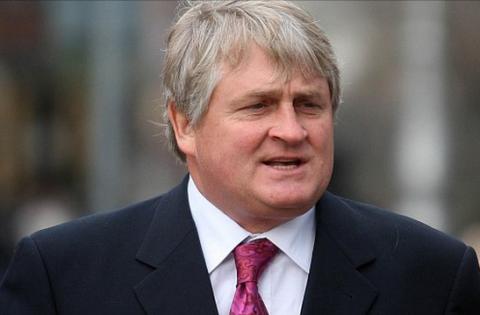Denis O'Brien's personal letter to me a protest too far

On 21 June last I received via email a personal letter from Denis O’Brien, marked “Private and Confidential”. The letter was prompted by a column I had written in the Irish Times on 13 June about an anticipated vote of censure against Mick Wallace TD and by comments I had made on the programme I present for TV3. (The correspondence between us can be viewed here.)
I wrote then that the proposed vote of censure was another charade as had the vote of censure on 31 March 2011, been on Michael Lowry. I noted that not a single TD who voted on the censure motion had read the report on which the motion was based and I noted how the Government, which had sponsored the motion, had glad-handed the person who had acted jointly with Michael Lowry on the award of the second mobile phone licence, Denis O’Brien.
In the course of the column I had summarised what I regarded as the key findings of the Moriarty tribunal report.
Denis O’Brien’s letter stated I had been wrong about the Esat company that had been sold to British Telecom in 2000 for €2.92 billion; that I had perpetuated the “lazy myth” that Esat Digifone had acquired the mobile phone licence for £15 million, which was inherently worth £2.3 billion. He said the true value of the licence was realised only “as a result of the investment of in excess of one billion Euro in risk capital and the hard work and honest endeavour of hundreds of Esat employees”.
He challenged my contention that he personally had made €367 million from the sale of the company. He wrote: “I invested significant personal resources over many years in the development of (the business).”
He further challenged my contention that he moved to Portugal to avoid paying capital gains tax on his capital gain in Esat. He wrote: “I had moved to Portugal some time before the sale of Esat Telecom to British Telecom and did so for perfectly valid and legitimate personal and business reasons.”
He complained I had misrepresented the findings of the report on his financial contribution to Fine Gael and on the detail of its findings on monies paid to Michael Lowry, findings which he again vehemently rejected. He asked: “How on earth do you think it either appropriate or justified that I should have my constitutional rights interfered with on the basis of one man’s opinion?” (that is, the opinion of the author of the Moriarty report, Michael Moriarty).
Towards the end of the letter he wrote: “I am putting you on notice that if you continue to libel me in your TV programme or your Irish Times column I will be left with no other avenue but to sue you personally.”
I replied substantively on 3 July. In that letter I recalled a conversation with him some years previously during which we discussed his avoidance of £50 million capital gains tax by his change of domicile to Portugal and he defended his action by claiming that the Irish government would have misused the £50 million.
Having cleared it with TV3, I invited him to take part in a TV interview where he would have a full opportunity to put his side of the case. I also said that, subject to the approval of the editor of the Irish Times, I would devote a column to presenting his case.
I outlined in detail the reasons why, in my opinion, he should not be allowed to control an appreciable section of the media here. I stated it was my intention to do a number of television programmes and newspaper columns on the Moriarty report because of the significance of the findings to a person who now wielded very considerable power in our society. I said I would base my comments on the specific findings and, where relevant, would acknowledge his rejection of the findings.
I noted his threat to sue me personally and said I understood it to be an intention to use his great wealth to stifle criticism. I wrote: “I regard (this) as an abuse of the wealth and the attendant power you have acquired and I will do what I can to resist that.”
Denis O’Brien responded on 20 July. He disputed my recollection of our meeting at which we discussed his change of domicile to Portugal. “Your version of our conversation at a meeting in my office differs disturbingly from my recollection of that meeting,” he wrote. Referring to my intention to “revisit” the findings of the tribunal, he said that was my prerogative. Then he wrote: “I did not make any payment to Michael Lowry” and he expressed the hope I would carefully review the balance of the evidence. He declined my invitation to do a TV interview and ended with his good wishes.
In that letter he made comments on how he thought the controller of a newspaper group should act and I hope to return to that.
My initial reaction on getting a “private and confidential” letter that included a threat to sue me personally over an ongoing public controversy was to make that threat public and to discard the claim to confidentiality. I did not act on that impulse, in part from a wish to let sleeping dogs lie and in part because I was distracted by other pressures.
{jathumbnailoff}
